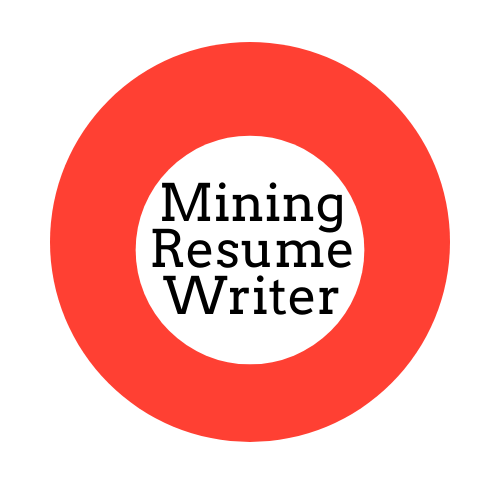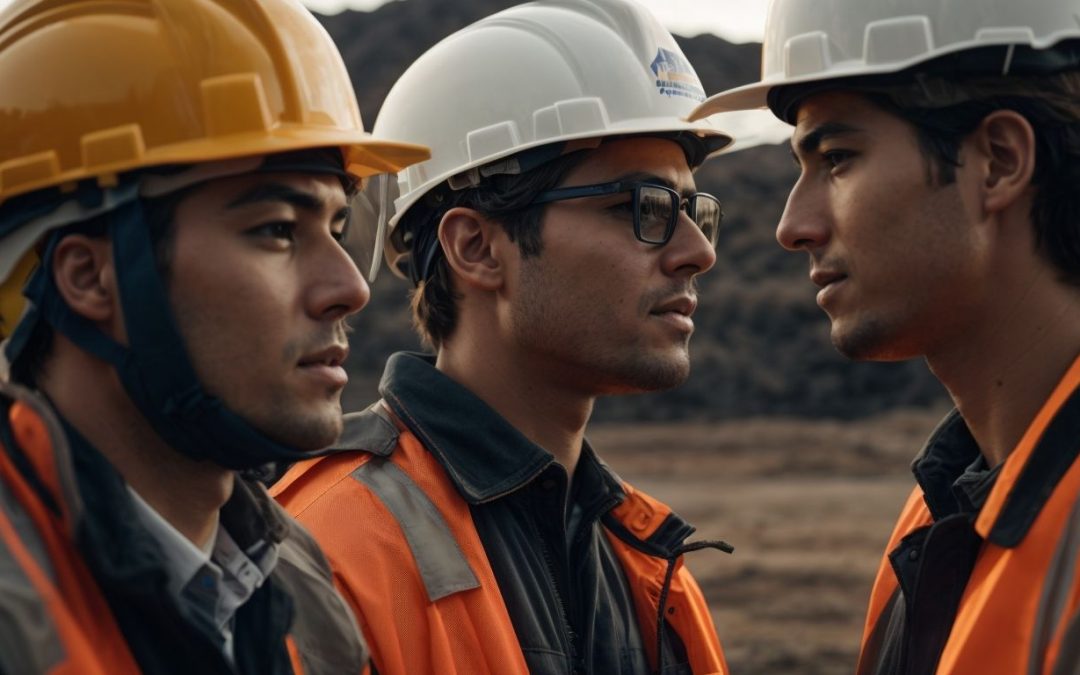Top Mining Jobs for Graduates in Australia
Australia is known for its booming mining industry, which offers numerous job opportunities for graduates looking to kickstart their careers. The country is rich in natural resources, making it a top destination for mining companies from around the world. Mining jobs in Australia not only offer competitive salaries but also provide opportunities for growth and development.
To work in the mining industry in Australia, there are specific requirements that must be met. These include education and training, physical requirements, and safety certifications. Graduates who meet these requirements can explore a variety of mining jobs in different fields.
Best Mining Jobs for Graduates
Some of the best mining jobs for graduates in Australia include:
- Mining Engineer: Responsible for designing, planning, and overseeing the construction and operation of mines.
- Geologist: Conducts geological surveys and studies to identify mineral deposits and determine the viability of mining sites.
- Metallurgist: Deals with extracting and processing minerals from ores, ensuring they meet quality standards.
- Environmental Scientist: Monitors and manages the environmental impact of mining operations.
- Surveyor: Uses high-tech equipment to survey and map mining sites.
- Occupational Health and Safety Officer: Ensures the safety and well-being of workers in the mining industry.
- Mining Technician: Assists with the operation of mining equipment and monitors processes.
To secure a mining job in Australia as a graduate, here are some tips to follow:
- Research the industry and understand the various roles and requirements.
- Network and make connections with professionals in the industry.
- Gain relevant experience through internships or entry-level positions.
- Apply for graduate programs offered by mining companies.
- Be willing to relocate as many mining jobs are located in remote areas.
Why Consider Mining Jobs in Australia?
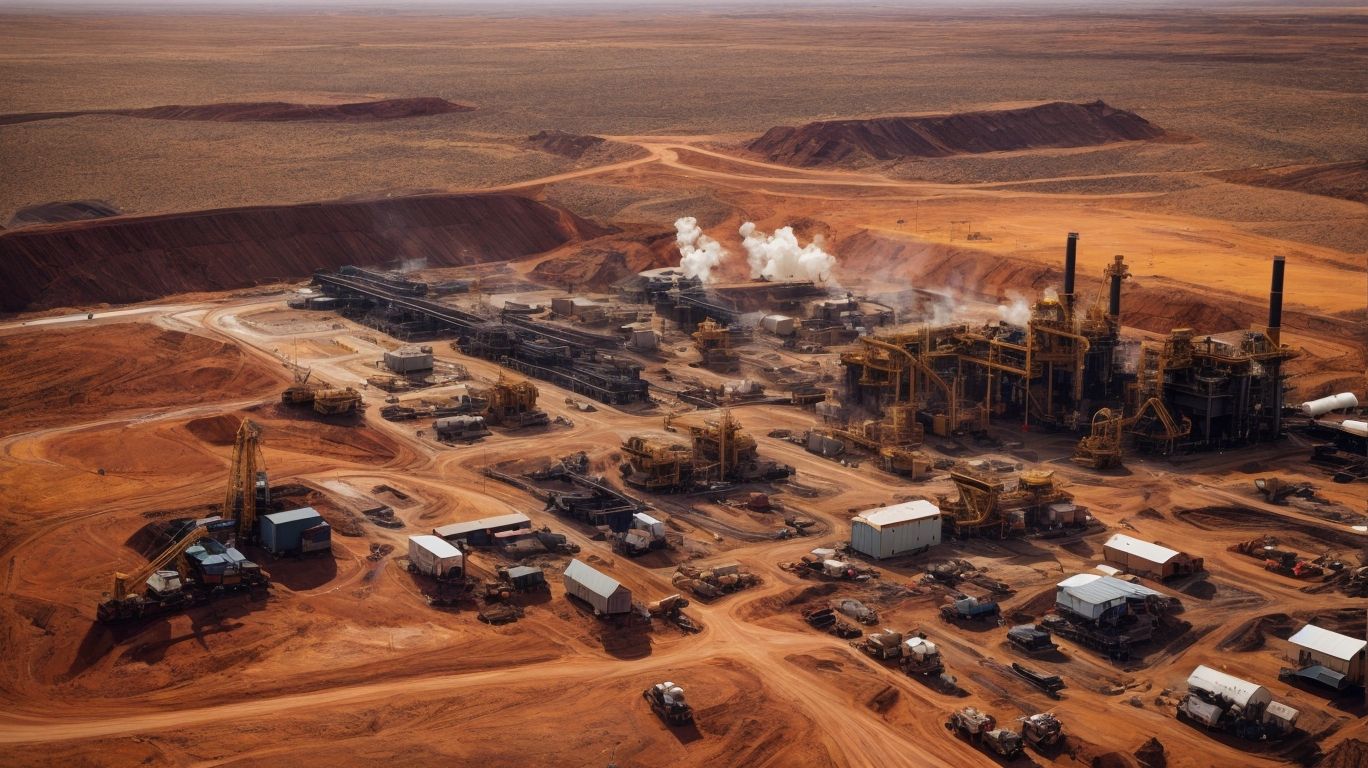
Mining jobs in Australia offer lucrative opportunities due to the country’s abundant natural resources, advanced mining technologies, and high demand for skilled workers. The mining industry’s contribution to the Australian economy and its stable job market make it an attractive career choice for graduates. Moreover, the industry offers diverse roles, from engineering to environmental management, providing a wide range of career development opportunities.
Considering mining jobs in Australia provides access to robust job prospects, competitive salaries, and a chance to contribute to a vital sector of the economy.
What Are the Requirements for Mining Jobs in Australia?
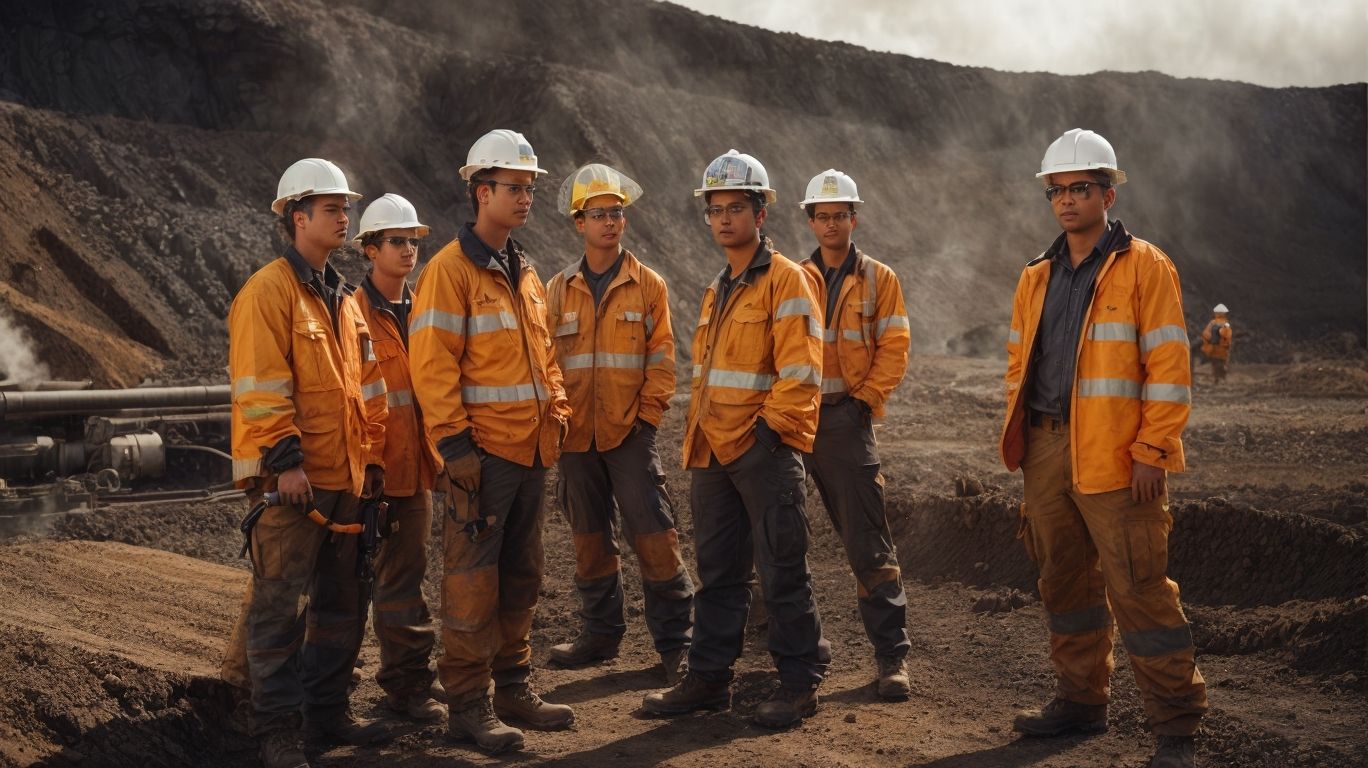
Australia is known for its thriving mining industry, offering numerous job opportunities for graduates. However, landing a mining job in Australia requires meeting certain requirements. In this section, we’ll discuss the different requirements that aspiring miners need to fulfill in order to secure a job in this industry. From education and training to physical abilities and safety certifications, we’ll cover all the necessary qualifications for a successful career in mining.
1. Education and Training
Research various mining roles and their educational prerequisites.
Complete relevant tertiary education in fields like mining engineering, geology, or environmental science.
Consider acquiring additional certifications or licenses specific to the mining industry.
Participate in internships or practical training to gain hands-on experience.
Stay updated with industry advancements and regulations through continuous training and education.
2. Physical Requirements
Physical fitness: A mining job demands excellent physical health and stamina.
Resilience: Endurance to work in challenging outdoor conditions and varied climates.
Manual dexterity: Ability to handle tools and equipment efficiently.
For individuals aspiring to enter the mining industry, ensuring you meet the physical requirements is crucial for a successful and satisfying career.
3. Safety Certifications
Understand the specific safety certifications required for the mining job you are interested in. Research industry-standard safety certifications such as Construction Induction Card (White Card), Work Safely at Heights, and Confined Space Entry. Enroll in accredited training programs to obtain the necessary safety certifications. Stay updated with the latest safety regulations and certifications relevant to the mining industry.
What Are the Best Mining Jobs for Graduates in Australia?
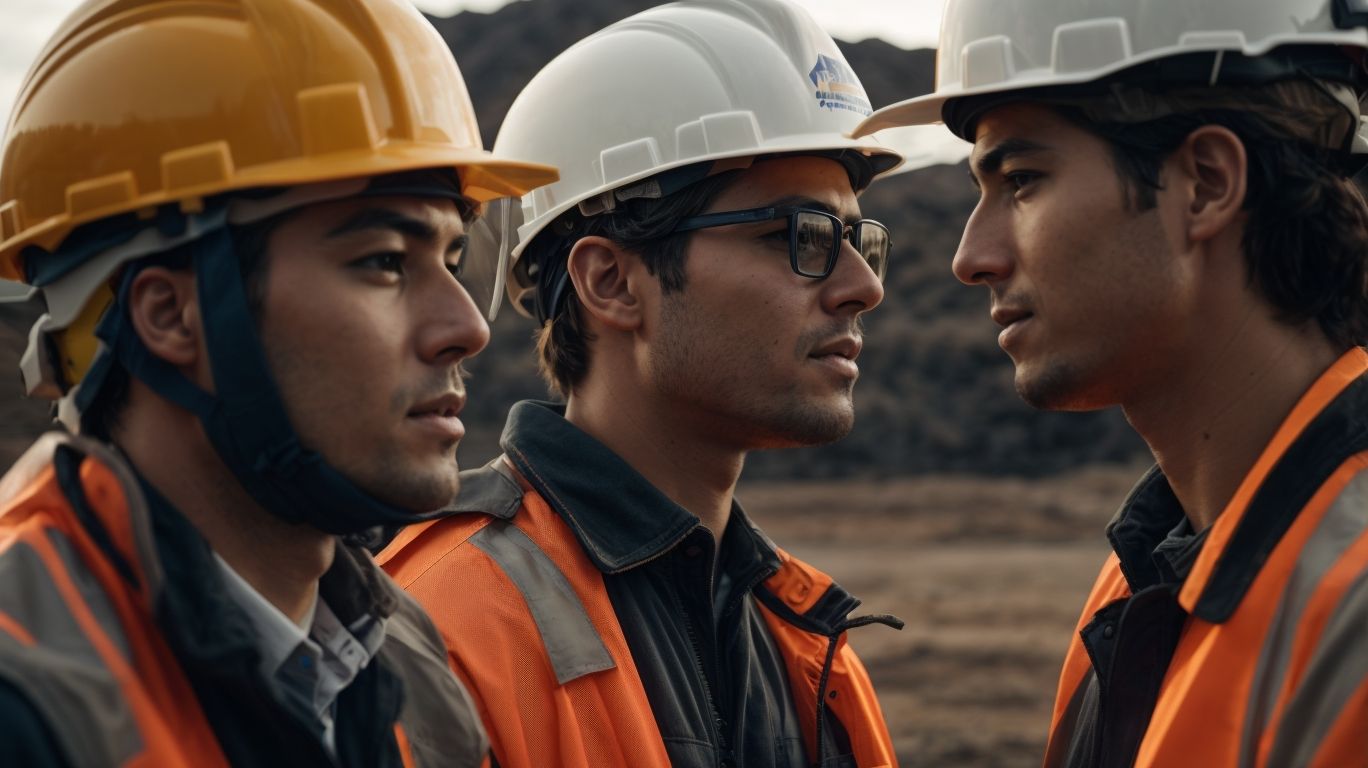
For graduates looking to kickstart their career in the mining industry, there are a variety of job opportunities available in Australia. Each role requires a unique set of skills and offers different prospects for growth and development. In this section, we will discuss the best mining jobs for graduates in Australia, including mining engineer, geologist, metallurgist, environmental scientist, surveyor, occupational health and safety officer, and mining technician. By exploring these roles, you can gain insight into which career path may be the best fit for your skills and interests.
1. Mining Engineer
Aspiring to become a mining engineer in Australia? Follow these steps:
- Earn a degree in mining engineering from a recognised institution.
- Gain practical experience through internships or co-op programs.
- Obtain relevant certifications and licences, such as a First Aid certificate or a Mine Manager’s Certificate of Competency.
- Network with industry professionals to explore job opportunities.
- Stay updated with industry trends and advancements in mining technology.
- Consider seeking mentorship from experienced mining engineers to gain valuable insights and guidance.
2. Geologist
A geologist, a key figure in the mining industry, examines the structure and processes of the earth to identify sites with valuable minerals. They analyse geological data, develop models, and advise on extraction methods.
3. Metallurgist
Individuals interested in pursuing a career as a metallurgist in Australia should follow these steps:
- Complete a degree in metallurgical engineering or a related field from a recognised institution.
- Seek internships or practical training opportunities with mining companies to gain hands-on experience.
- Obtain relevant certifications and accreditations to enhance employability and credibility.
- Network with professionals in the industry to explore job opportunities and stay updated on industry trends.
- Apply for entry-level metallurgist positions through mining companies or recruitment agencies.
In the late 19th century, metallurgists played a crucial role in revolutionising steel production, contributing to the industrial advancement of numerous nations.
4. Environmental Scientist
Environmental scientists in the mining industry play a vital role in ensuring compliance with environmental regulations and mitigating the impact of mining activities. They carry out environmental assessments, monitor air and water quality, and devise strategies for sustainable mining practices. These professionals collaborate closely with mining engineers and geologists to minimise environmental damage.
For those wishing to pursue a career as environmental scientists in the mining sector, a solid background in environmental science, geology, or related fields is essential. Undertaking internships and obtaining relevant certifications can further improve career prospects.
5. Surveyor
A surveyor in the mining industry plays a vital role in mapping and measuring mine sites, ensuring accurate records of mining activities. They use advanced technologies like GPS and drones to create detailed maps and monitor any changes to the landscape due to mining operations. Surveyors also collaborate with engineers and geologists to provide essential data for efficient and safe mining processes.
If considering a career as a surveyor in the mining sector, gaining proficiency in GIS software and maintaining precise documentation are crucial. Networking with industry professionals and seeking internships can provide valuable practical experience. To excel as a surveyor in mining, adaptability, problem-solving skills, and a keen attention to detail are paramount. Staying updated with technological advancements and safety regulations is essential for a successful career in this field.
6. Occupational Health and Safety Officer
Research occupational health and safety officer roles in the mining sector.
Acquire relevant education and training in occupational health and safety.
Obtain safety certifications and licenses required for mining sites.
Develop a strong understanding of mining safety regulations and protocols.
Gain practical experience through internships or entry-level positions in the mining industry.
7. Mining Technician
- Complete relevant education: Pursue a degree or certification in mining technology, engineering, or a related field.
- Acquire practical training: Gain hands-on experience through internships or apprenticeships in mining settings.
- Obtain necessary licenses: Secure certifications required for mining technician roles, such as a valid driver’s license and safety certifications.
- Develop technical skills: Hone skills in operating and maintaining mining equipment, as well as troubleshooting technical issues.
- Stay updated: Keep abreast of technological advancements and safety regulations in the mining industry.
What Are the Salaries for These Mining Jobs?
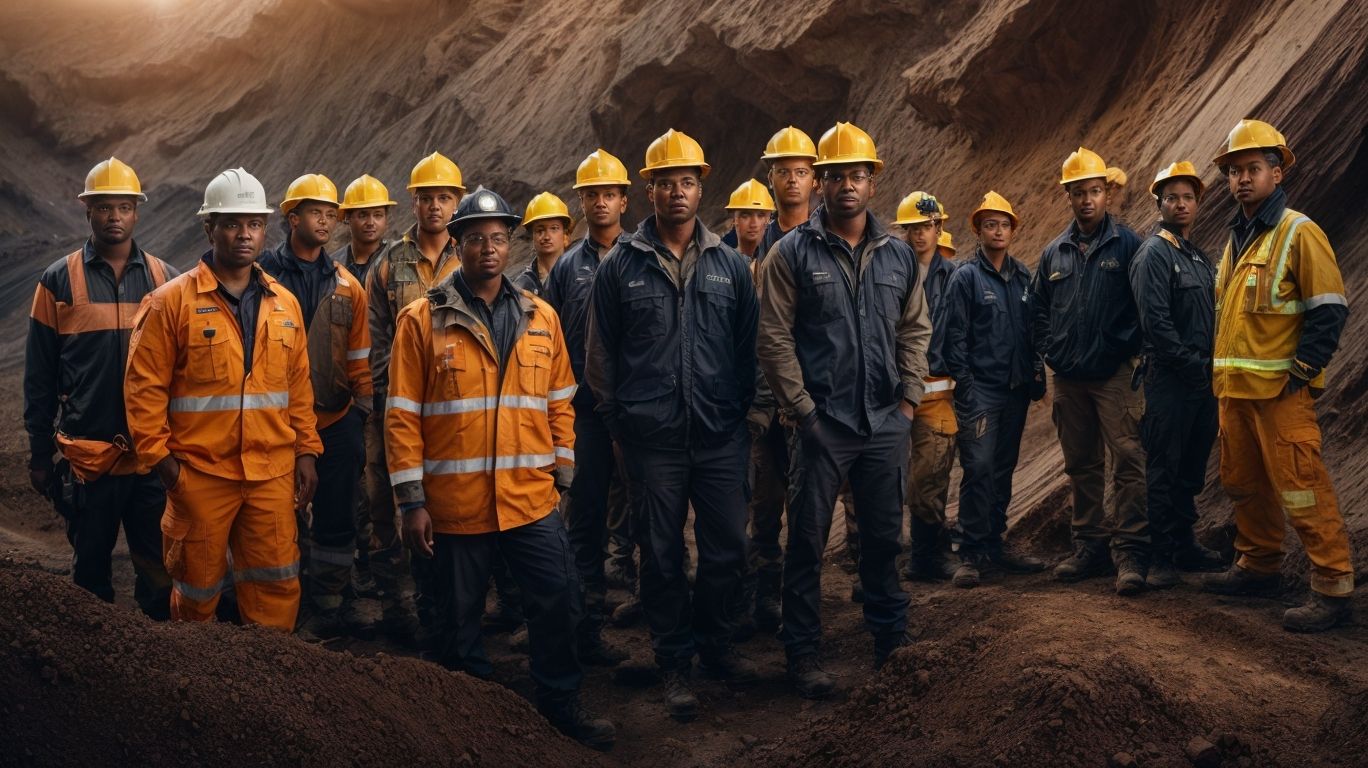
Salaries for mining jobs in Australia vary based on experience, education and job role. Entry-level positions like mine geologists can start around $80,000 to $100,000. Mining engineers may earn $90,000 to $130,000, while experienced mine managers can make $150,000 to $230,000. These figures can fluctuate with market conditions and company policies.
How to Get a Mining Job in Australia as a Graduate?
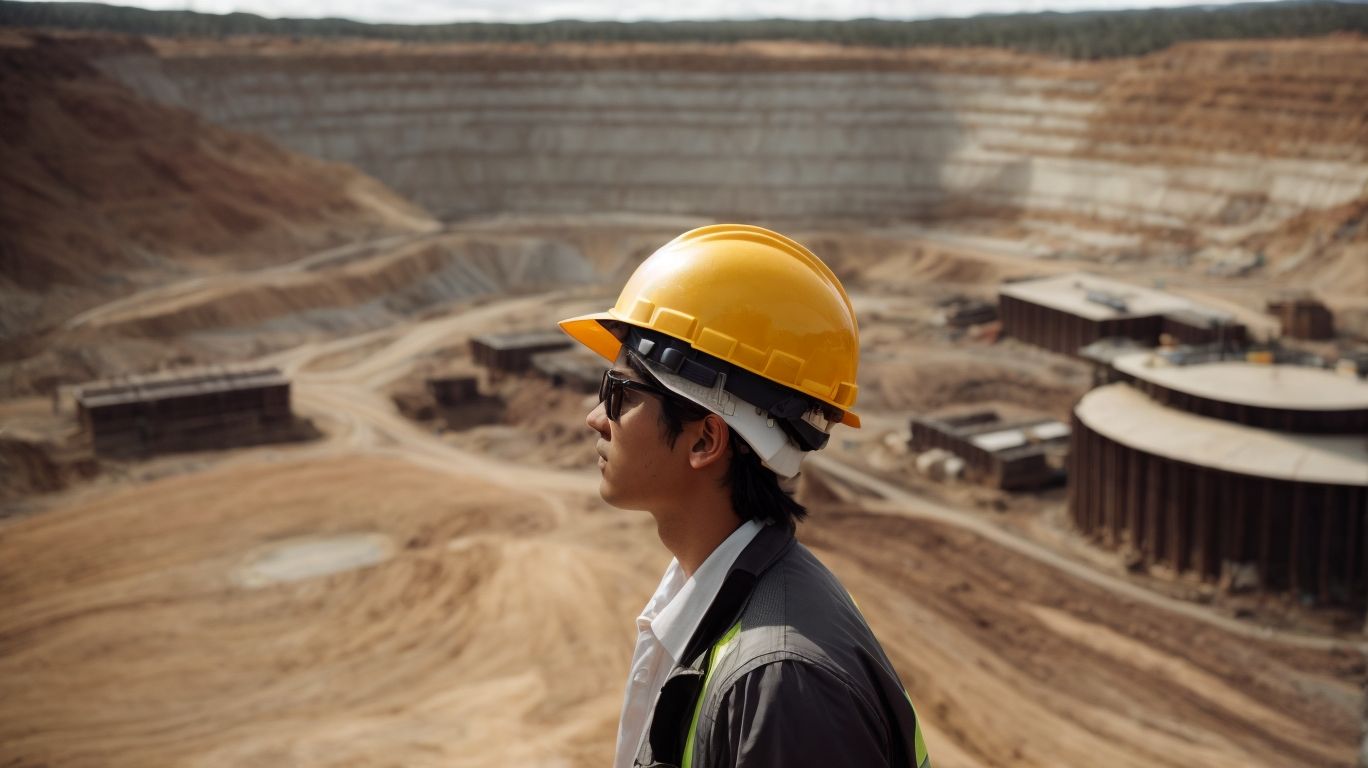
For recent graduates in Australia, the mining industry can offer a wealth of job opportunities and career growth. However, breaking into this competitive field may not be easy. In this section, we will discuss the essential steps to take in order to secure a mining job in Australia as a graduate. From researching the industry and networking, to gaining relevant experience and applying for graduate programs, we’ll provide valuable insights and tips to help you land your dream job.
1. Research the Industry
To research the mining industry in Australia, follow these steps:
- Review industry reports and publications for insights into market trends and job demand.
- Connect with professionals in the field through networking events or online platforms like LinkedIn.
- Explore industry associations and attend their events to stay updated on the latest developments.
- Engage in informational interviews with industry professionals to gain valuable firsthand knowledge.
- Stay informed about technological advancements and sustainability initiatives shaping the industry’s future.
Fact: Australia is the world’s leading producer of bauxite, alumina, rutile, and tantalum, showcasing its significant role in the global mining sector.
2. Network and Make Connections
Attend industry events and job fairs to network with professionals.
Join mining-related associations and groups to connect with industry insiders.
Utilise social media platforms like LinkedIn to build professional connections.
Reach out to alumni, professors, and professionals for informational interviews and advice.
Participate in workshops, seminars, and training programs to expand your network.
3. Gain Relevant Experience
Internships: Seek internships with mining companies to gain practical experience and industry insights.
Part-time Jobs: Take on part-time roles in the mining sector to develop relevant skills and knowledge.
Volunteering: Offer your time to organisations involved in mining-related projects to acquire hands-on experience.
Industry Projects: Engage in industry-specific projects during your education to apply theoretical knowledge in practical scenarios.
4. Apply for Graduate Programs
- Research available postgraduate programs in the mining industry.
- Review the program requirements and application deadlines.
- Prepare application materials, including a well-crafted CV and compelling covering letter.
- Submit applications for the chosen postgraduate programs.
- Follow up on the status of your applications and prepare for potential interviews.
5. Be Willing to Relocate
Research the industry to identify potential job locations and understand the demand for your skillset. Network with professionals and organizations in the mining sector to explore opportunities in different regions. Gain relevant experience in diverse locations to showcase flexibility and adaptability. Apply for graduate programs in various locations to increase the likelihood of securing a position. Be willing to relocate to remote mining sites or different states for promising job prospects.
Fact: In Australia, about 70% of mining occurs in remote or regional areas, necessitating a willingness to relocate for lucrative career opportunities.
